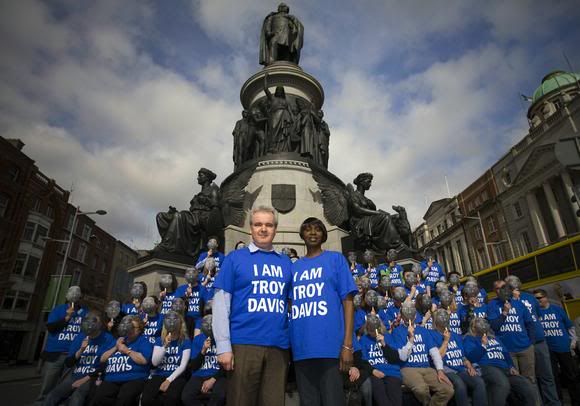cross-posted from The Dream Antilles
This morning, I re-wrote my dailyKos diary from yesterday, put it up, and again asked people please to call New Mexico Governor Richardson and to ask him to sign the Death Penalty Abolition Bill. Here’s what I wrote:
I posted this diary yesterday. I’m posting it again today because Governor Richardson is taking comments on the New Mexico Death Penalty Abolition Bill until Monday evening.
Friday, I wrote that the New Mexico legislature passed a bill calling for the abolition of that state’s death penalty. The bill (pdf) has been sent to Governor Richardson for his signature. That’s where you, my fellow Kossacks, come in. We all need to call the Governor and ask him to sign the bill.
Governor Richardson has formerly supported the death penalty, but he says he has not made up his mind about this bill:
Richardson, a second-term Democrat, has opposed repeal in the past but now says he would consider signing it.
“I haven’t made a final decision,” the governor said this week.
I want you, fellow Kossacks, to help him make his final decision, a decision to sign the abolition bill.
You can make a lasting contribution to the abolition of the death penalty in New Mexico and ultimately in the entire US, by making a single telephone call to New Mexico Governor Richardson and asking him courteously to sign the death penalty abolition bill. Just ask that he sign the bill. Here’s the number: (505) 476-2225. The number will record your request. There is no human being on the phone, just a recorder.
Please spend 30 seconds making this call and make this request.
The logic for this is clear. The more calls the Governor receives, the more he understands that there is enormous support for him and for abolition and for his signing the bill. Huge support for signing makes it more likely that the Governor will sign the bill.
It’s unbelievably simple what is needed. But it requires you, dear Kossacks, to take action, to make the call, to spend 30 seconds.
Please make this call. Please bring abolition of the death penalty to New Mexico.
Despite their directness, neither diary/essay generated a large response. Today’s had about 20 recommendations; yesterday’s, about 40. I have no idea how many people actually called Governor Richardson’s number (505) 476-2225 and left a recorded message asking the Governor to sign the bill. I know that I did, and I trust that those who said they called in the comments actually called. Of course, I have no idea how many people just made the call after they saw the essay and didn’t bother to click anything on dailyKos.
I also sent the first request for calls essay to a number of well known, large, leftwing blogs to ask them to help out with this, to ask them to ask their readership to call the Governor. This morning I awoke to see that none had responded to the request.
I don’t really claim to understand how something that seems to me to be so important and so easy to carry out can have so lame a response. I’m not whining about this. I’m just saying that I don’t understand it. I have no intention of spending additional time or energy trying to figure this out. I need to devote myself to trying to bring about results and not shunt myself onto some abandoned siding to analyze the meta.
So, dear readers, I am asking you to call Gov. Richardson and ask him to do the right thing, sign the bill, end the death penalty in New Mexico. It’s easy. And it’s the right thing to do.
Update (3/15, 3:35pm ET): Richardson apparently is taking this decision very seriously. Here’s the local Sunday story:
The governor said he is looking for the public’s input before he decides.
“I want to hear compelling argument, factual arguments. I want to hear from the clergy-conscious arguments,” he said.
Although the death penalty is still common in places like China, Africa and Middle-Eastern countries, The United States is on an increasingly short list of western nations that still execute prisoners–something the governor says he’s aware of.
“It bothers me that America is one of the few countries that still has the death penalty,” he said.
The governor’s office has been flooded with thousands of calls and e-mails on the issues, with opinion split evenly. Now, the governor says he wants to go face-to-face with voters.
“We’re going to be available all weekend to hear from constituents,” he said. “I’m going to meet with constituents on Monday–anyone that wants to talk to me about this issue,” he said.
You can call the governor at 505-476-2225. You can also e-mail him through his website under the “contact the governor” link.
Put another way, your call is especially urgent. And, of course, you can email as well.
Update (3/16, 1:53 pm ET): Last chance to make this call is today, Monday. I’m doing what I can to solicit responses, including this at GOS. Anyone else is, of course, free to post similar solicitations. Thanks for all the attention to this.

